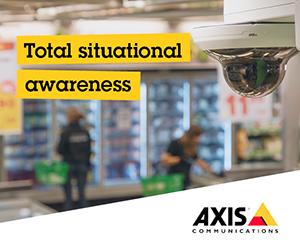RETAIL ENVIRONMENT
Will retail bounce back be sustained?
Retail sales for the third quarter of 2020 showed a qualified improvement on the previous figures, according to the latest KPMG and Ipsos Retail Think Tank (RTT).
Its Retail Health Index (RHI) - a quantitative and qualitative assessment of demand, margin and cost - rose by six points, bringing the index to 67. This follows a 10 point fall in the index during the previous quarter.
With the latest British Retail Consortium and KPMG retail sales monitor showing total sales up 5.6 per cent in September, the RTT collectively agreed that the retail sector has made an “impressive bounce back” as the easing of lockdown restrictions caused pent-up demand to be released.
There has been a particularly strong uplift in homewares and electrical sales, thanks to the cut in stamp duty spurring home moves and unspent holiday savings being ploughed into DIY and home improvements.
Formal and occasion wear fashion has been slower to recover as a result of home working, while sports and leisure wear sales have grown at pace. Grocery sales continued to grow well, as consumers switched from eating out to eating in, notwithstanding the government’s Eat Out to Help Out scheme.
Margins generally remained under control and had no impact overall on the state of retail health. Promotions on average were considered to be no deeper or wider ranging than the quarter before and were not a cause of undue alarm.
Paul Martin, KPMG’s UK head of retail, commented: “Online sales have continued to grow and so fashion retailers have had to work hard to encourage shoppers through the doors of their stores.
“That said, the overall health index for this quarter is still far lower than all previous years, so we cannot ignore the fact that consumer confidence remains low.”
Looking ahead to the next quarter, the RTT stated that retail health will grow by one point, ending the year still down five points on its level before the pandemic struck.
With pent-up demand having run its course, consumer spending is expected to be more in line with household incomes compared to the third quarter, and so demand is anticipated to have a small positive impact on health. Consumer confidence may also be knocked by the threat of a second nationwide lockdown and a No Deal Brexit.
Taking this into account, the Think Tank’s experts acknowledged that some retail sectors are going to have a difficult period over the coming quarter. Cities will continue to see a footfall decline of up to half, while formalwear and occasion wear retailers will take a hit.
On the flip side, grocery sales are expected to grow, with the population expected to hold multiple celebrations to mark the end of a difficult year.
Tim Denison, director of retail intelligence at Ipsos, commented: “Following the bounce in retail health in the third quarter, the next quarter could paint a very different picture, largely propped up by a growth in food and drink sales in the run up to Christmas.
“However, there are serious questions about how the grocery sector may cope with the usual last-minute surge to supermarkets – also, online delivery will be at a premium due to the need for safe distancing in warehouses and fulfilment centres.”





